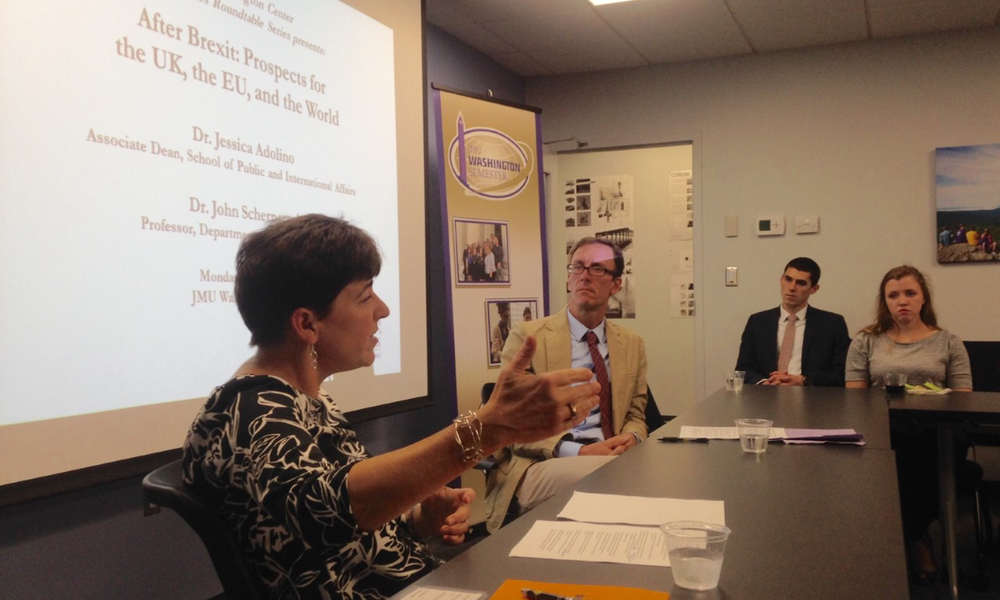Brexit Update
M.A. in Political Science, European Union Policy Studies
Brexit presents a dangerous and complicated puzzle for the United Kingdom. To avoid being defeated by the politics of Europe (like most Tory leaders before her), Prime Minister Theresa May has pledged to fully honor the Leave vote. Her stated goal: “taking back control”—of British borders, British laws and British money—and, especially, her unyielding stance on tightening EU migration—suggests that the Brexit she envisions will be a hard one.
May’s rhetoric has received the cold-shoulder in Europe and stimulated a rare show of unity, with EU leaders asserting the impossibility of negotiating a Brexit that allows Britain to remain in the single market without full freedom of movement. The prospects of a “hard” Brexit—with Britain fully out of Europe—seem quite high, and, despite the Brexiteers’ cheer, any realistic assessment of the country’s future is pessimistic. Even a “soft” landing—along the lines of the Norway model—would leave the UK worse off than it was before the vote. While Brexit in any form threatens Britain’s economic prospects, it poses a perhaps more troubling and significant threat to the country’s vaunted traditions of stable and effective governance.
The British economy has performed reasonably, and surprisingly, well since the referendum, with manufactures and the stock market holding their own. But, there also has been a dramatic drop in the pound’s value relative to the dollar, exports have weakened, and nearly all growth and investment forecasts are gloomy. No country has ever attempted anything on the scale Britain will be forced to address, and the tasks will be both technically and politically challenging.
The daunting to-do-list? Article 50 negotiations for exit, setting up new trade arrangements with the EU and other countries around the world, resuming independent membership in the WTO, and that is just the minimum of tasks. Independently, none of these negotiations would be quick or easy; attempting them simultaneously is nearly impossible. In the short term, the British will find themselves in a trading no-man’s-land; over the longer haul, it is difficult to guarantee that they will ever find their way back to the robust trade regime they currently enjoy. Consequently, the country has clearly entered into what will be a prolonged period of economic uncertainty and unpredictability.
The economic picture will also be affected by what transpires on the migration front. Populist arguments over the need to restrict EU migration into the UK fueled much of the debate over Brexit and continue to do so since the vote. Yet, British economic growth and prosperity is highly dependent on foreign workers in both the public and private sectors for both skilled and unskilled workers. If the EU labor stream were to be closed off, an aging British population, loss of labor from Eastern European countries, and the unwillingness or inability of native workers to fill the vacancies of unappealing jobs, all pose significant economic challenges.
Finally, the United Kingdom faces governability and stability issues regardless of the form Brexit takes. Once the reality of an economic downturn occurs, the Tory government - with a small parliamentary majority, continued division in its ranks, and in the face of a strengthened far right - will find itself once again in EU-based political trouble. Meanwhile, the opposition Labour and Liberal Democratic parties are in disarray, and their leaders lack political credibility. Collectively, these factors presage an extended period of political chaos. Such a political state further complicates finding solutions to a slew of preexisting and pressing problems —youth unemployment, migrant integration, terrorism, health, housing, and education, to name only a few. When we add to this mix a strong possibility that Brexit will provoke a successful second Scottish independence referendum and a dissolution initiative in Northern Ireland, the United Kingdom confronts the very real possibility of a damaging breakup of the entire country.
Despite assertions that “the British people did not vote to become poorer or less secure” by the Chancellor, it is hard to foresee a scenario where a country that was among the strongest economies and governments in the EU is not profoundly and negatively affected by the likely hard Brexit.
Written by Dr. Jessica Adolino, JMU Professor of Political Science
